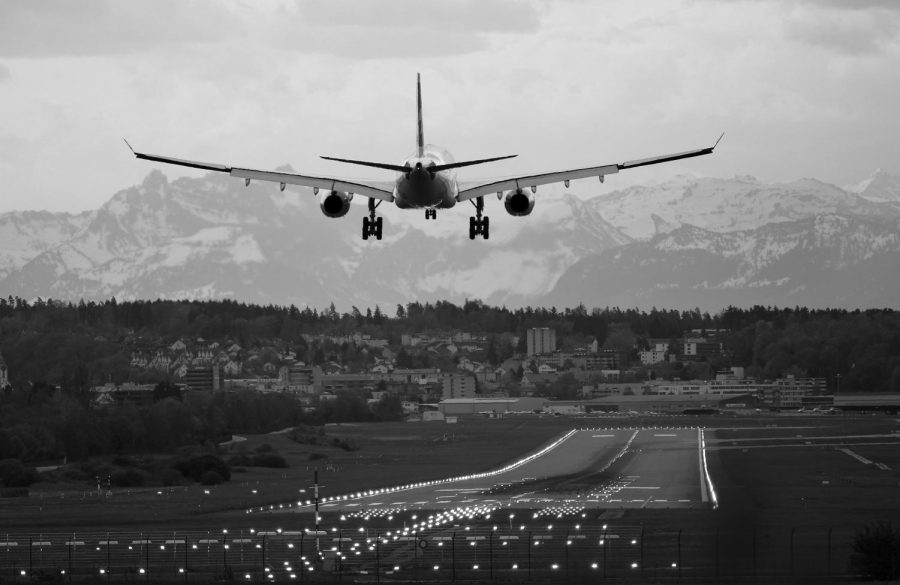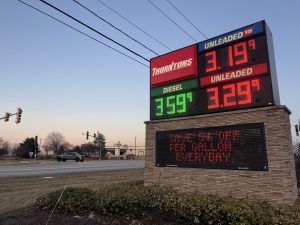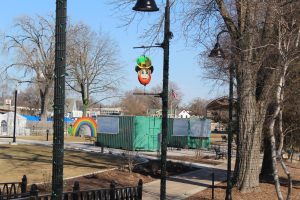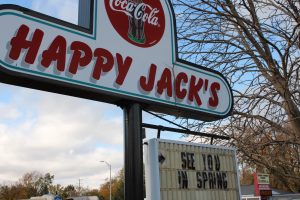Air travel precautions during COVID-19
Airplanes and airports have many rules and precautions, due to COVID-19, that passengers have to follow from destination to destination.
December 11, 2020
Traveling on airplanes during COVID-19 involves many safety precautions. Airlines and airports installed safety precautions in order to keep their passengers as safe as possible.
Before traveling to some places, passengers are required to make sure that they have not contracted COVID-19. According to flight attendant, Mrs. Monique Alymenda, some places require a negative Covid-19 test or a quarantine for 14 days before flying, and some states require a quarantine for 14 days upon arrival. This is just one of the many precautions airports and airlines are taking to minimize the spread of COVID- 19.
In order to keep the passengers safe during COVID-19, each airline company has put in rules to low the risk of passengers contracting COVID-19. One of the rules is that everyone has to wear face masks on the plane. According to Spirit Airlines, face coverings must be worn while at the airport, and on the aircraft, but they may be removed only while eating, drinking, or taking medication, when done, face coverings must be repositioned immediately. Every airport and airline company requires face masks to be worn, unless the person has a medical condition that prevents them from wearing a mask, or the passenger is under the age of two. According to American Airlines, face coverings are required for all team members and travelers in the airport – where your trip begins, where it ends and where you connect. Masks are important to trying to keep everyone safe while traveling in airports or airplanes.
The staff must clean the airplane before passengers enter the plane, in order to help increase the passenger’s safety on the airplane. According to American Airlines, high-touch and public areas like tray tables, seatbelt buckles, armrests, window shades, seatback screens, doors and overhead bin handles continue to be cleaned before every flight. Cleaning before and after each flight helps reduce the number of germs being spread from flight to flight. In order to make sure that every spot is completely cleaned, lots of airlines give out wipes. “As a flight attendant I am required to hand out alcohol wipes to each customer coming onto the plane so they can wipe down their area, but before they get on the plane, every surface was wiped down with disinfectant and electrostatic sprayer that is used to spray all surfaces,” explained Alymenda. When a passenger wipes down their area it can not only work to insure that every area was cleaned, but also calm the passengers nerves about the cleanliness of the plane.
When traveling a passenger’s safety is not insured, but airlines and airports work to make it safer for the passenger. Sometimes someone does have COVID-19 without knowing, and it is not caught before they fly on an airplane with other passengers. Once the passenger finds out they have COVID-19, they are supposed to inform the airlines. According to Almeyda, there’s a contact tracing put in place, but that is if they call. If the person calls who has COVID-19, the airline will call the other passengers and informed them of the situation.
If the rules and safety precautions are not followed by a passenger or passengers, then they will have consequences. The airlines have them follow those rules for the safety of others, so when they don’t follow the rules they are putting other peoples’ safety at risk. “I have to constantly check for mask compliance and gently remind them to put their mask on over their nose and mouth. If they refuse to wear the mask and I have told them three times, they can lose their travel privileges forever on the airline,” explained Almeyda. When a person that can follow the rules does not, they put a lot of people at risk, so the airlines has to protect the other passengers by enforcing the rules with consequences. By doing this they have a higher chance of passengers following the rules they have put into place.
Lots of airlines have safety options, not rules, that people can take. They are there to make some people feel less nervous when flying, and work to lower passengers’ risk of contracting COVID-19. According to Spirit Airlines, they encourage passengers to use their kiosk self bag-tag and self bag-drop when they’re available, and they’ve also made it so guests can scan their own boarding passes and are welcome to board at the end of the boarding process if they wish. Airlines recommend using these extra precautions to the passenger’s advantage because they can help to keep a passenger as safe as possible while in the airport.
Traveling in an airport and flying leads to many inconveniences for the passengers. According to American Airlines, their food and drink service is limited in the Main Cabin, based on flight length and destination, and in some airports restaurants may be closed. Not having food and drink service can make some passengers uncomfortable in the airport or airplane during long distance traveling. When traveling, passengers have to be prepared for the what ifs, so they can have a better traveling experience.
Airlines and airports have many rules and precautions passengers have to follow. In order to find out what the precautions and rules of the airlines and airports you might be going to and flying with, go to their website to check out the COVID-19 precautions and rules section, or some places and airports have a phone number that you can call to find out the rules. Some airlines and airports differ in rules, so it is important that passengers understand the rules from destination to destination.











